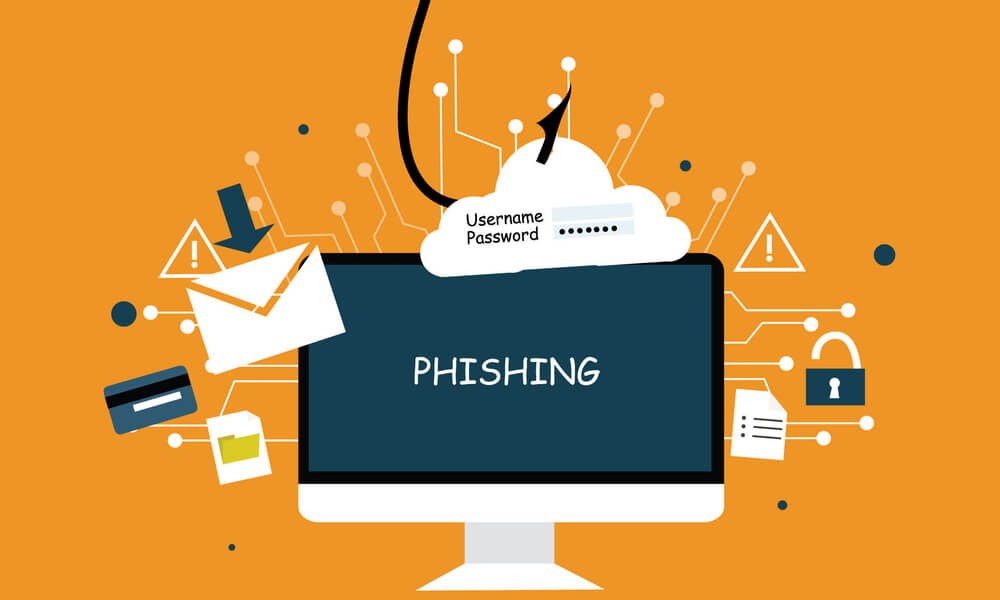Phishing has long been a pervasive threat, but the addition of AI has taken it to new heights of danger. Enter Phishing 2.0: an even more sophisticated, convincing, and hard-to-detect menace. To stay ahead of this evolving threat, understanding its nuances is essential.
A recent study found a 60% increase in AI-driven phishing attacks, underscoring the urgent need to address this growing threat. In this context, we’ll delve into how AI is amplifying the scourge of phishing and provide guidance on what you can do to safeguard yourself against these insidious tactics.
The Evolution of Phishing
Phishing started out as a relatively straightforward tactic, with attackers sending out large volumes of emails in the hopes that someone would take the hook. These early attempts were often amateurish, characterized by grammatical errors and glaring inaccuracies. As a result, many individuals were able to spot these phishing attempts with ease.
However, times have changed. Cybercriminals have harnessed the power of AI to elevate their phishing tactics. With AI’s assistance, they can now craft messages that are remarkably convincing, making it much harder for unsuspecting victims to detect fraud. Moreover, AI enables attackers to focus on specific targets, tailoring their pitches to maximize the chances of success. This has resulted in a significant increase in the effectiveness of phishing attacks.
How AI Enhances Phishing
Creating Realistic Messages
By leveraging its ability to process vast amounts of data, AI can study human communication patterns, including writing and speaking styles. Armed with this knowledge, it can generate phishing messages that convincingly mimic the tone and language of genuine communications from trusted sources. These sophisticated fake messages are designed to sound like they come from a real person, making them extremely challenging to detect as fraudulent attempts.
Personalized Attacks
AI has the ability to scour social media and other online platforms for information about an individual, including their professional and personal details. It then uses this gathered intel to craft highly personalized phishing messages that seem tailor-made to its target. These convincing communications might reference specific aspects of your life, such as your job, hobbies, or recent activities, making them seem even more authentic. By incorporating these personal details, AI-powered phishing attacks can significantly boost their effectiveness in deceiving victims into divulging sensitive information.
Spear Phishing
Spear phishing takes aim at specific individuals or organizations, representing a far more targeted and sophisticated threat than traditional phishing attacks. The integration of AI into spear phishing has elevated its potency, enabling attackers to conduct in-depth research on their targets. This allows them to craft highly personalized messages that are almost indistinguishable from genuine communications, making it even more challenging for victims to detect the deceit.
Automated Phishing
AI has revolutionized the phishing process by automating numerous aspects, allowing attackers to send out massive volumes of phishing messages at an unprecedented rate. Additionally, AI enables attackers to dynamically adapt their messaging strategy based on recipient responses. For instance, if someone clicks on a link but doesn’t provide sensitive information, AI can promptly dispatch a follow-up email to try and capitalize on the momentum. This relentless persistence significantly boosts the chances of a successful phishing attack, making it even more crucial for individuals to remain vigilant against these sophisticated tactics.
Deepfake Technology
Deepfakes represent a cutting-edge form of AI-generated content that can convincingly create realistic fake videos and audio files. Cybercriminals are now leveraging this technology to enhance the effectiveness of their phishing attacks. For instance, they might craft a video depicting a CEO or other trusted authority figure requesting sensitive information, making it seem as though the request is coming directly from the source. This innovative approach adds an unprecedented level of deception to phishing attacks, increasing their believability and rendering them even more perilous for unsuspecting victims.
The Impact of AI-Enhancing Phishing
Increased Success Rates
The integration of AI into phishing tactics has significantly amplified their impact, resulting in an alarming number of individuals falling prey to these sophisticated phishing attacks. The consequences are far-reaching, with data breaches becoming more frequent and widespread. This can have devastating financial implications for companies, as well as put individuals at risk of identity theft, fraud, and other serious cybersecurity threats.
Harder to Detect
Conventional approaches to detecting phishing attempts are often ill-equipped to tackle the sophisticated tactics employed by AI-powered attackers. Even advanced spam filters and employee training may struggle to identify these highly convincing and targeted attacks, leaving them unchecked and allowing cybercriminals to capitalize on unsuspecting victims. This lack of effective countermeasures enables attackers to achieve a higher level of success in their phishing efforts.
Greater Damage
The rise of AI-powered phishing has the potential to unleash devastating consequences, as personalized and highly targeted attacks can culminate in massive data breaches that compromise sensitive information. Furthermore, attackers may gain unauthorized access to critical systems, disrupting business operations and causing significant financial losses. The severity of these outcomes underscores the urgent need for robust cybersecurity measures to counteract the evolving threat landscape.
How to Protect Yourself
Be Skeptical
Maintain a healthy dose of skepticism and treat all unsolicited messages with caution, even if they seemingly originate from a trusted source. This applies even if they seemingly originate from a trusted source. Always take the time to verify the authenticity of the sender and ensure their identity is legitimate. Furthermore, exercise restraint when encountering links or attachments from unknown sources – refrain from clicking or downloading until you can confirm their validity and safety.
Check for Red Flags
When evaluating incoming emails, remain vigilant for telltale signs of potential phishing attempts. Keep an eye out for suspicious red flags such as overly generic greetings, exaggerated language designed to create a sense of urgency, or requests for sensitive information that seem too good (or too convenient) to be true. Trust your instincts and exercise caution if the email in question appears to be too good, too vague, or too attention-grabbing to be legitimate.
Use Multi-Factor Authentication (MFA)
Implementing Multi-Factor Authentication (MFA) adds a crucial additional layer of protection to your online accounts. Even if an attacker manages to obtain your password, the added hurdle of requiring another form of verification, such as a code sent to your phone or a biometric scan, significantly hinders their ability to access your sensitive information. This extra layer of security effectively raises the bar for would-be attackers, making it much more difficult for them to successfully breach your accounts and compromise your digital identity.
Educate Yourself and Others
Knowledge is power in the fight against phishing. By educating yourself on the tactics and techniques used by attackers, you’ll be better equipped to recognize and avoid falling prey to these schemes. Stay up-to-date with the latest threats and trends, and share your expertise with others to help them stay safe online. Training and awareness programs can also play a crucial role in empowering individuals to identify and resist phishing attacks, ultimately reducing the risk of data breaches and other cybersecurity incidents.
Verify Requests for Sensitive Information
Remember that emails are not a secure way to share sensitive information. When you’re asked for personal or financial details via email, don’t respond. Instead, verify the request through a separate and trusted communication channel. Reach out directly to the person or organization in question using a known phone number or email address you’ve used before. This added layer of caution can help protect you from falling prey to phishing scams or other types of online fraud.
Use Advanced Security Tools
To stay ahead of the game, consider investing in cutting-edge cybersecurity solutions designed to combat phishing threats. Advanced anti-phishing software can proactively identify and block malicious attempts to compromise your digital identity. Email filters can also play a vital role by screening out suspicious messages and preventing them from reaching your inbox. Moreover, it’s crucial to maintain the most recent versions of your security tools, ensuring you have the latest protections against emerging phishing tactics.
Report Phishing Attempts
In case of a suspected phishing attempt, promptly report the incident to your organization’s IT team or email provider. By doing so, you’ll not only help them refine their security protocols but also contribute to the overall protection of your digital community by preventing similar phishing attempts from targeting others. Your swift action can make a tangible difference in maintaining the trust and confidentiality of online interactions.
Enable Email Authentication Protocols
To safeguard against email spoofing, consider implementing robust authentication protocols such as Sender Policy Framework (SPF), DomainKeys Identified Mail (DKIM), and Domain-based Message Authentication, Reporting, and Conformance (DMARC) for your domain. By enabling these protocols, you’ll introduce an additional layer of security to your emails, making it more challenging for attackers to spoof your domain and send malicious messages. This added protection will help preserve the integrity and authenticity of your online communications.
Regular Security Audits
Regularly conduct thorough security assessments to uncover potential weaknesses in your systems and networks. By doing so, you’ll be able to proactively identify vulnerabilities that could be exploited by attackers, thereby reducing the risk of successful phishing attacks. Addressing these vulnerabilities promptly can help prevent unauthorized access, minimize data breaches, and safeguard against other types of cyber threats.
Need Help with Safeguards Against Phishing 2.0?
Phishing 2.0 poses a significant threat. With AI enhancing tactics, attacks are becoming increasingly convincing and challenging to identify. When was your last email security review? Perhaps now is a good moment to consider one.
At Cynxt, we specialize in delivering IT Solutions that ensure peace of mind. Contact us today or call (256) 456-5858 to schedule an appointment. Located at the Shoals Business Incubator in Florence, AL, we are dedicated to helping you maintain a smooth and secure digital operation.

Cynxt Service Areas:
We proudly serve businesses in the following areas and surrounding cities. Click here to view the full list. Remote support is also available for businesses anywhere.
North Alabama:
- Florence
- Muscle Shoals
- Russellville
- Athens
- Decatur
- Huntsville
Middle Tennessee:
- Franklin
- Columbia
- Lawrenceburg
- Pulaski
About Us:
With over 18 years of IT experience, Cynxt IT Services delivers enterprise-level solutions tailored to small and medium-sized businesses. As a trusted Managed Service Provider (MSP), we’re dedicated to supporting your growth with reliable, expert IT services and unmatched customer care.
Services:
Explore our wide range of IT Services. Learn more about how we can help with your IT needs. Not finding the service you’re looking for? Contact Us to discuss custom solutions.
- Managed IT Services
- Hourly IT Support
- Cybersecurity
- Cloud Services
- Networking
- Network Cabling
- IT Consulting





